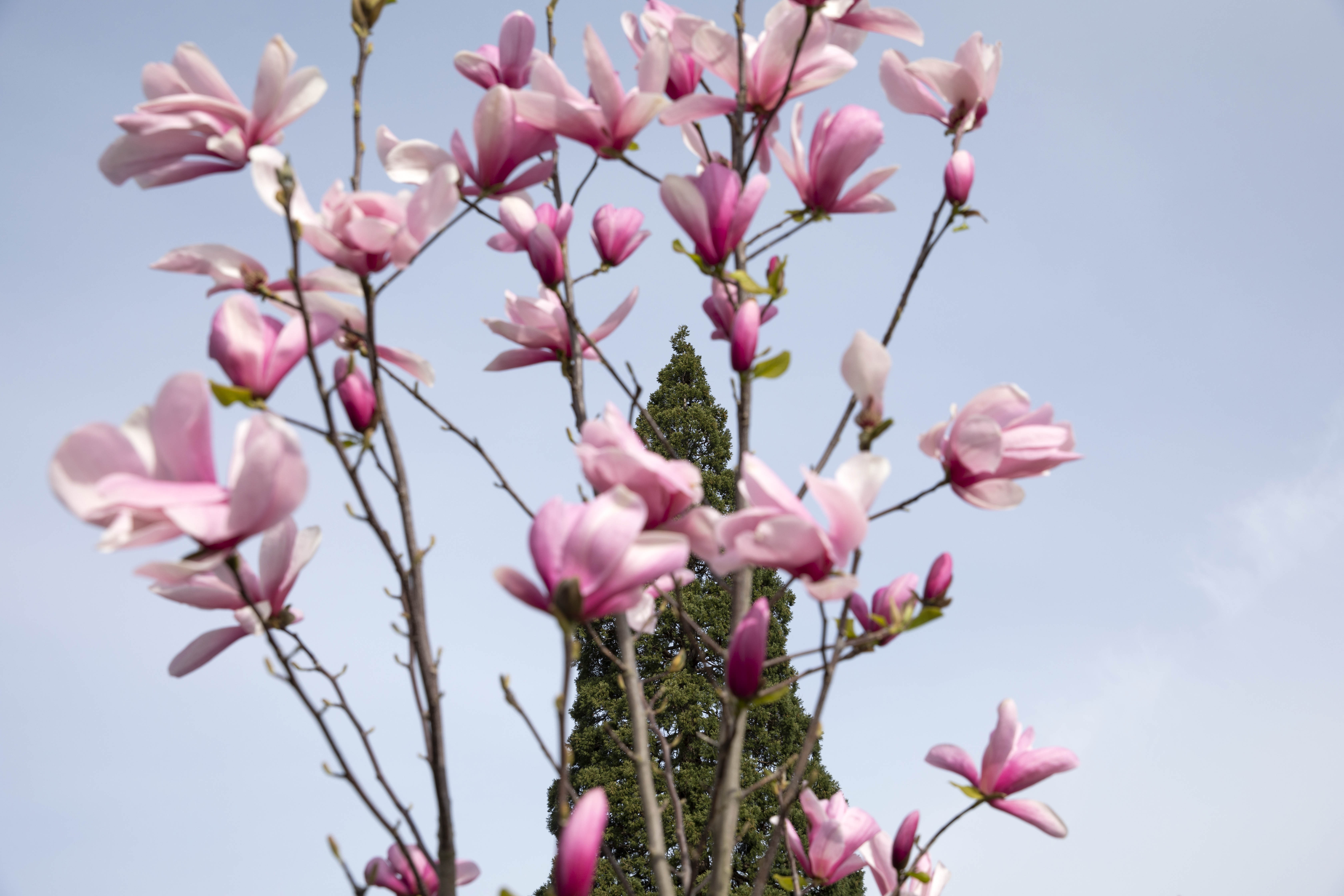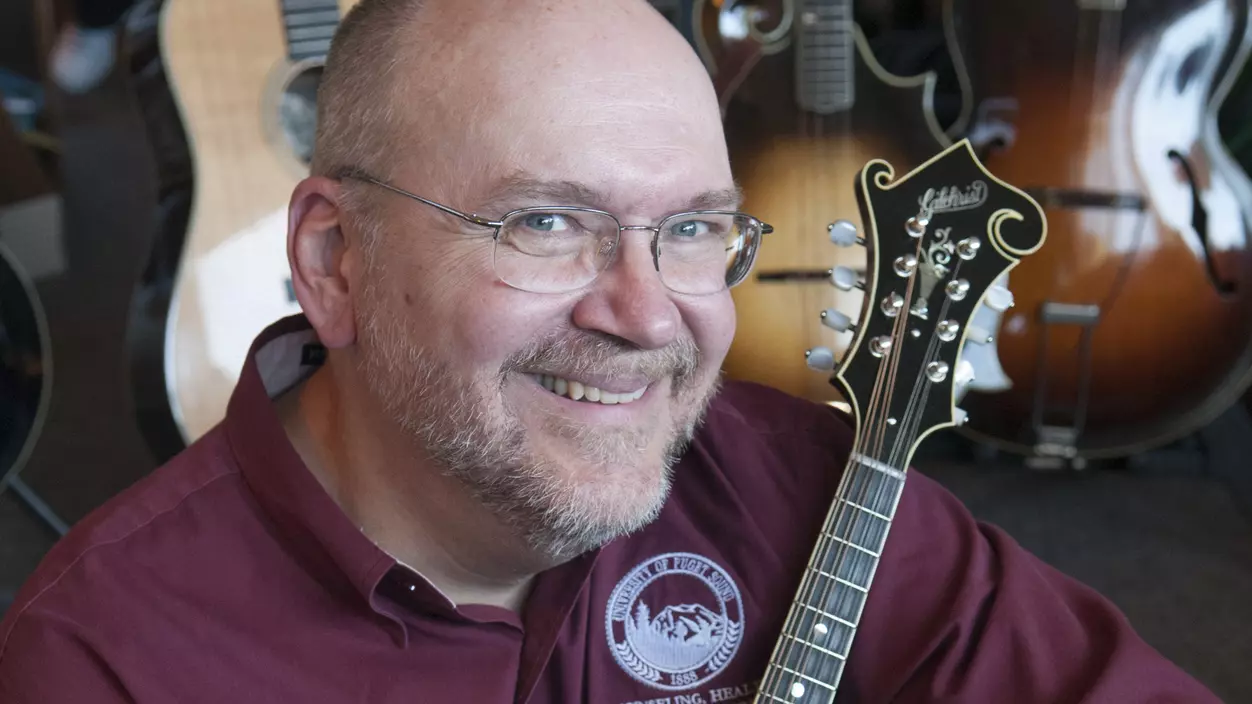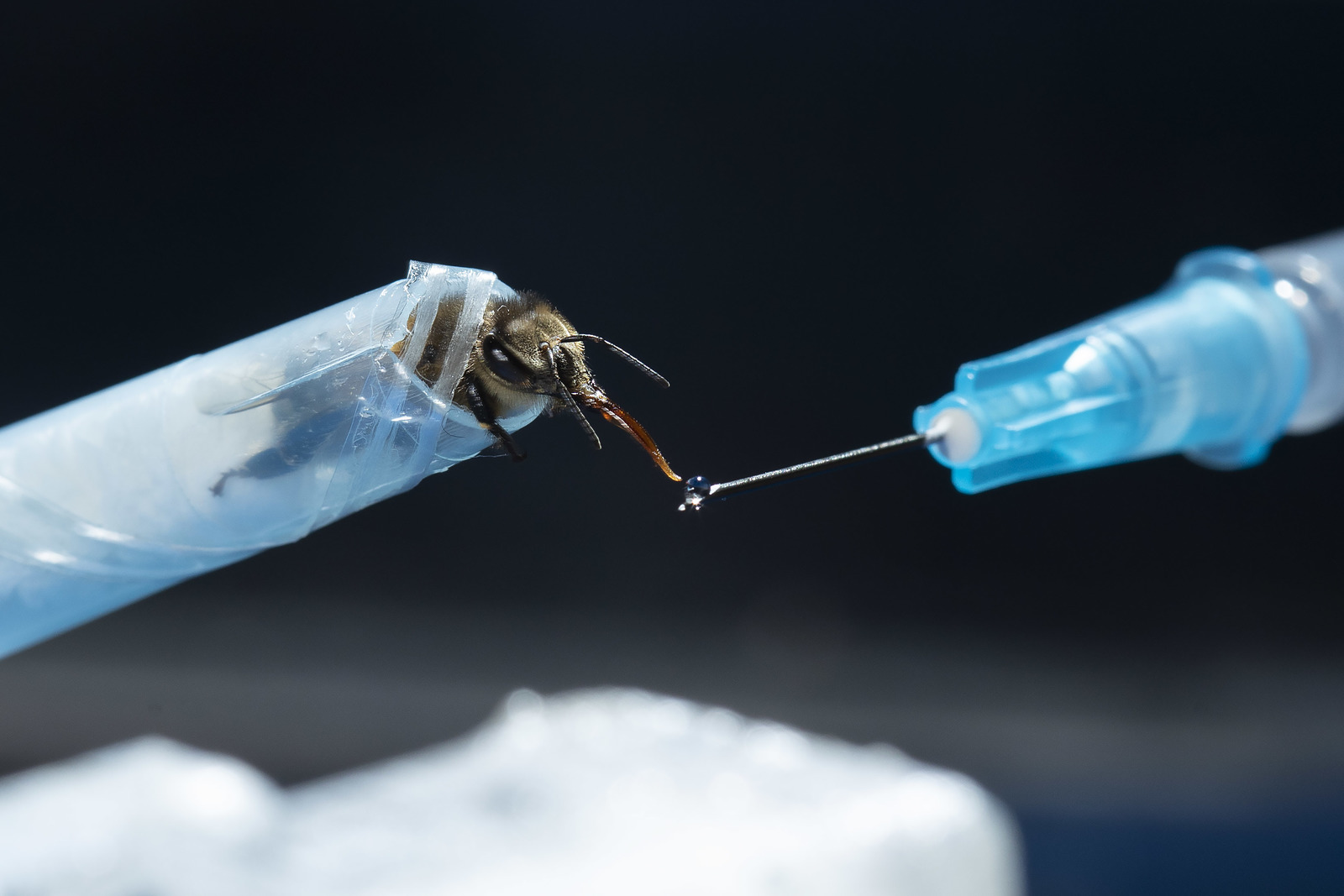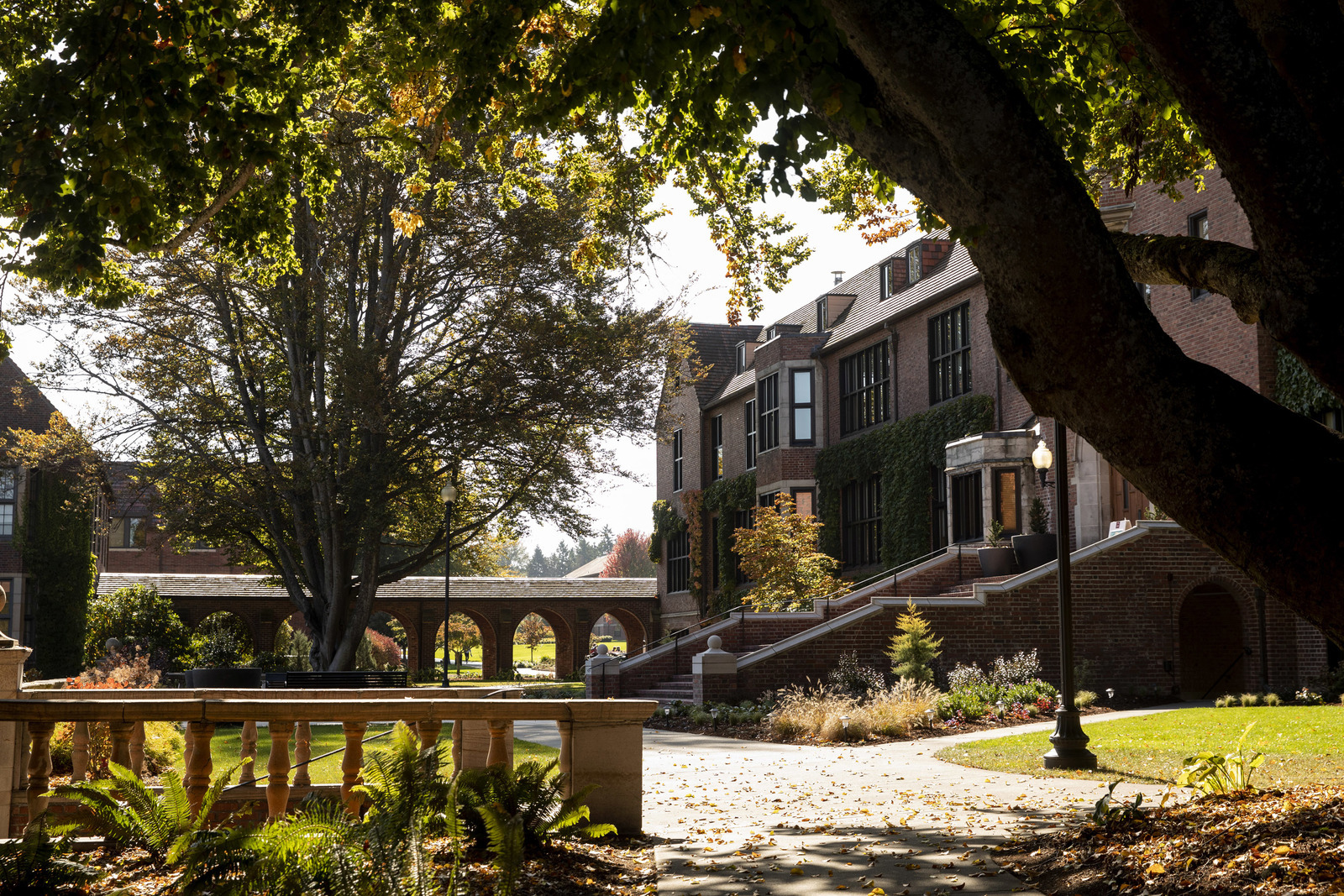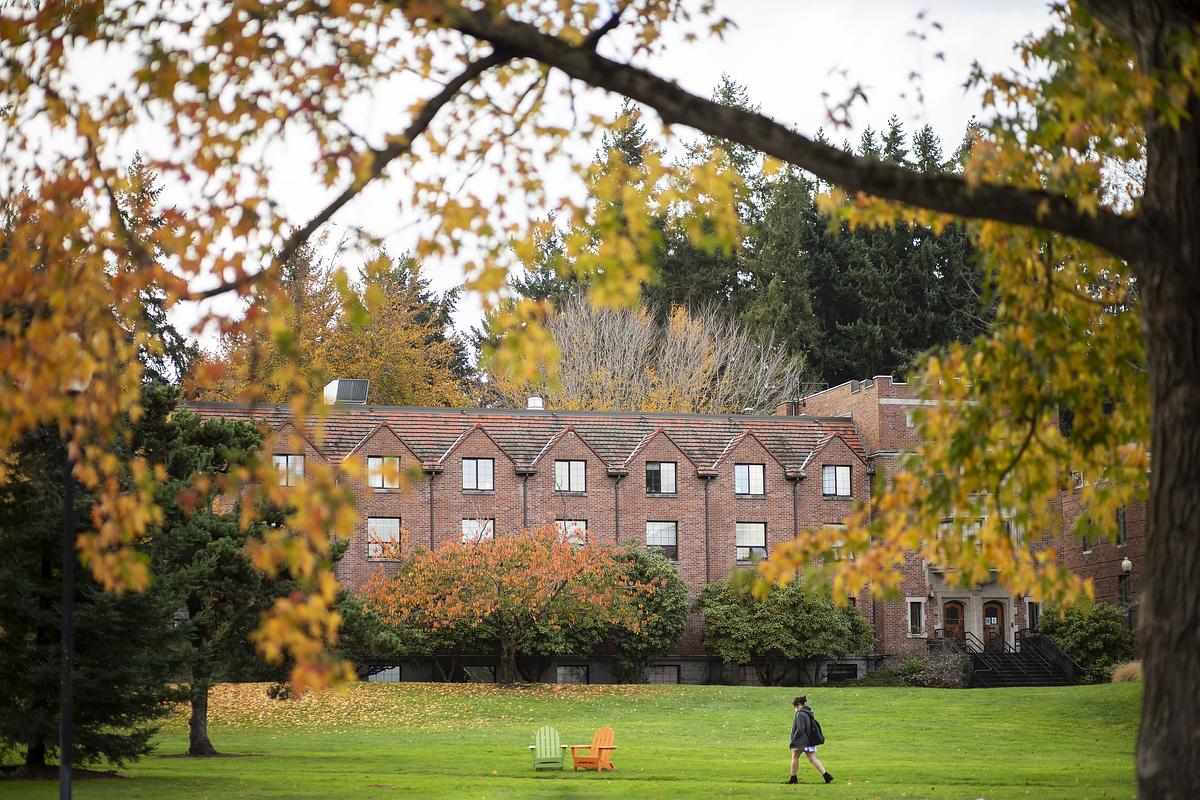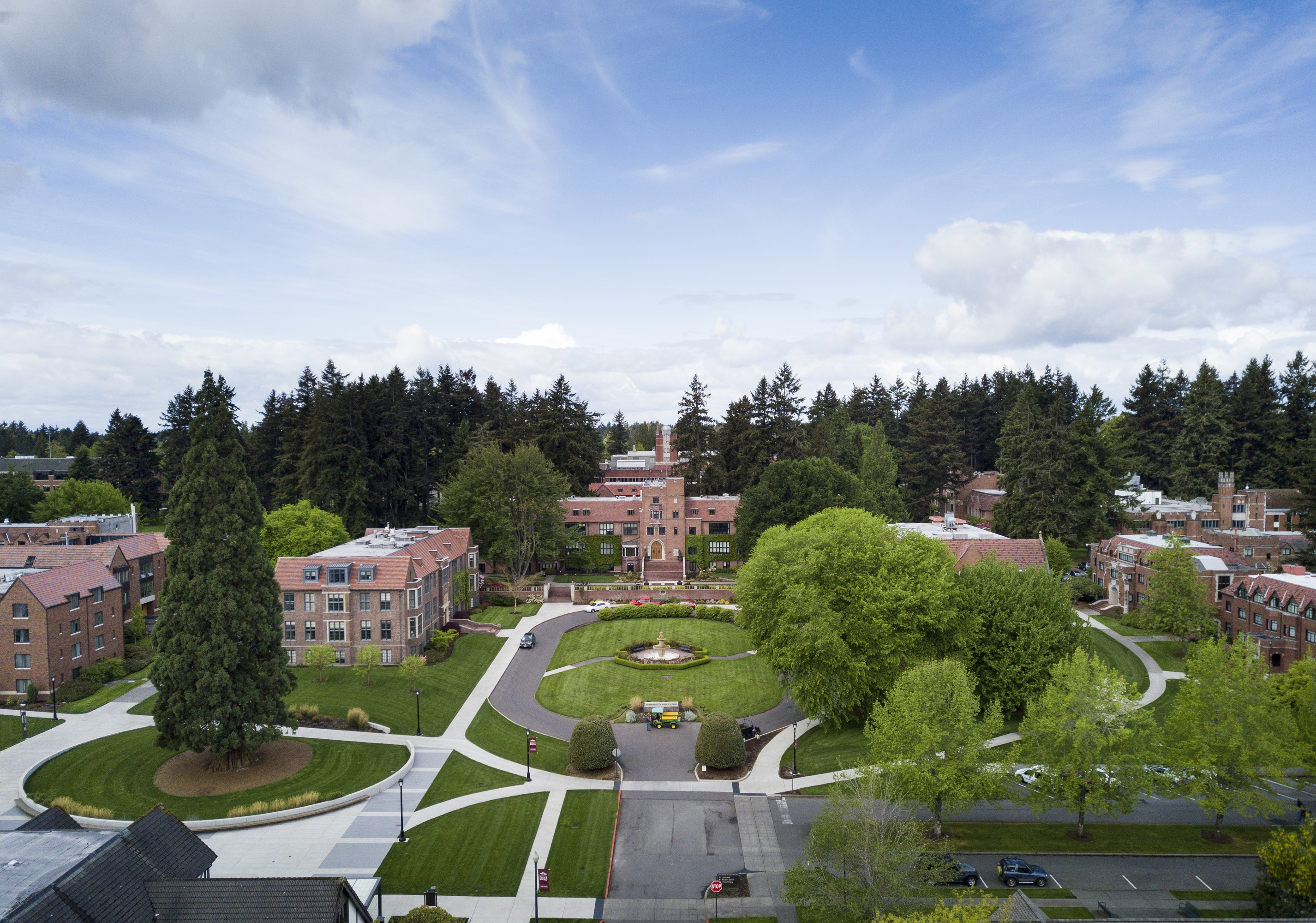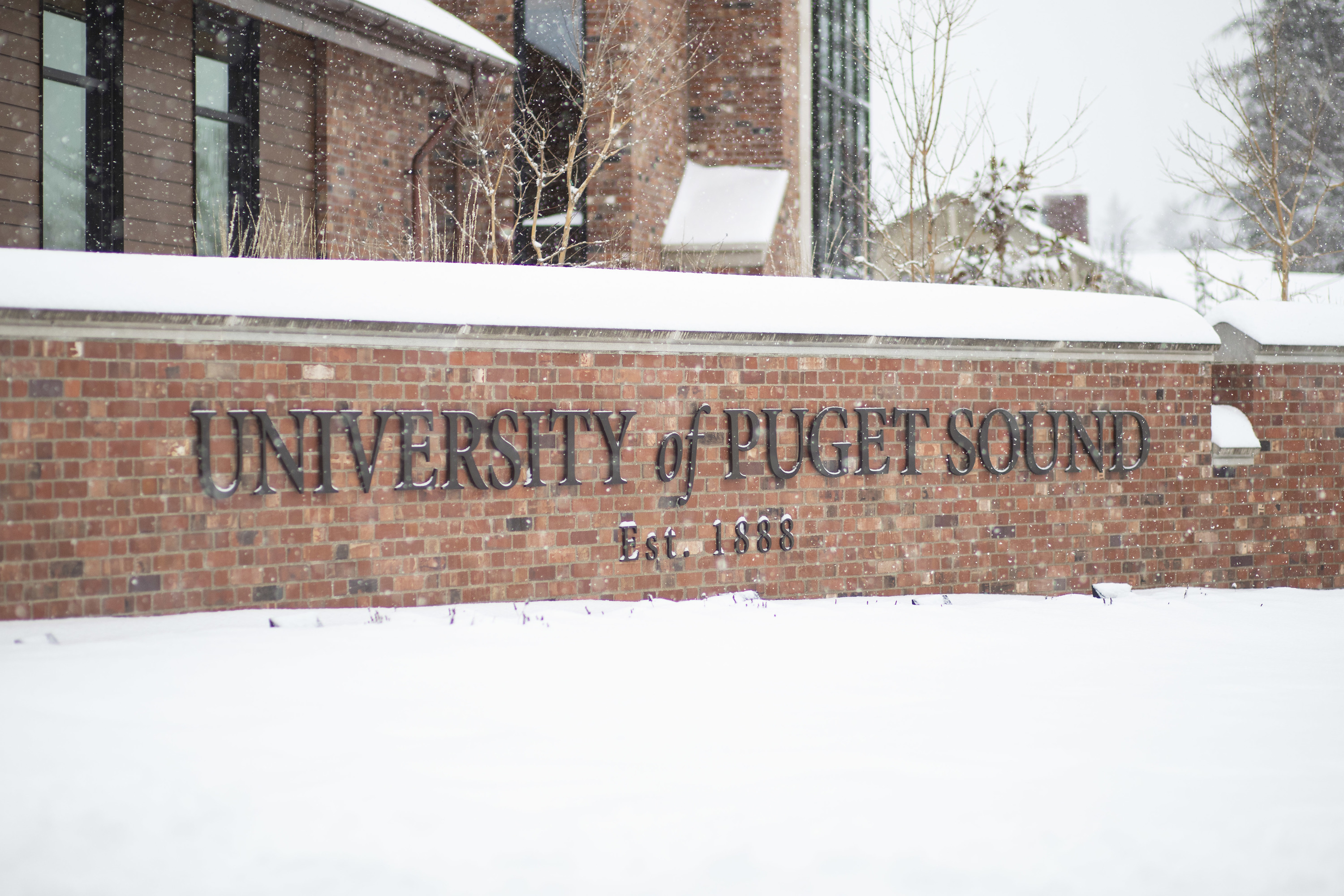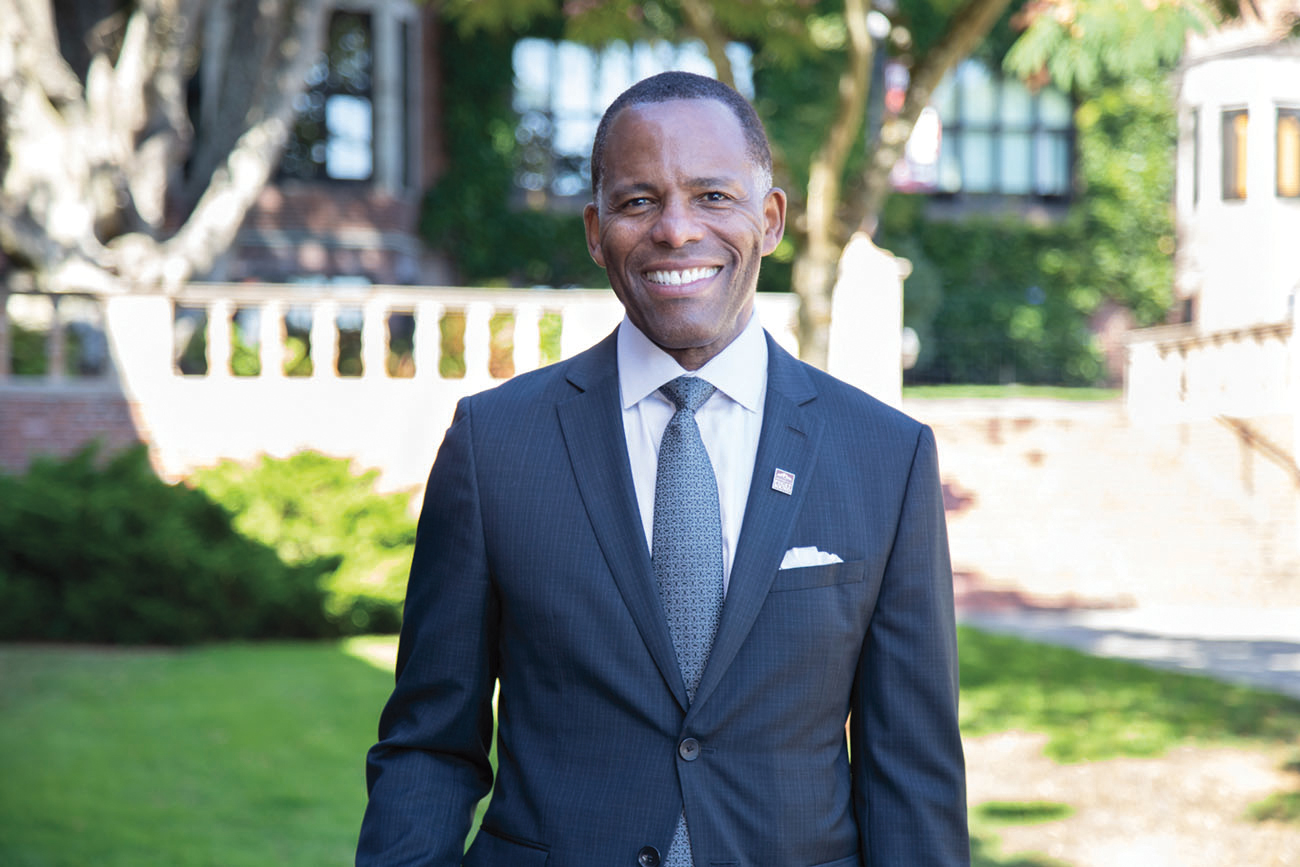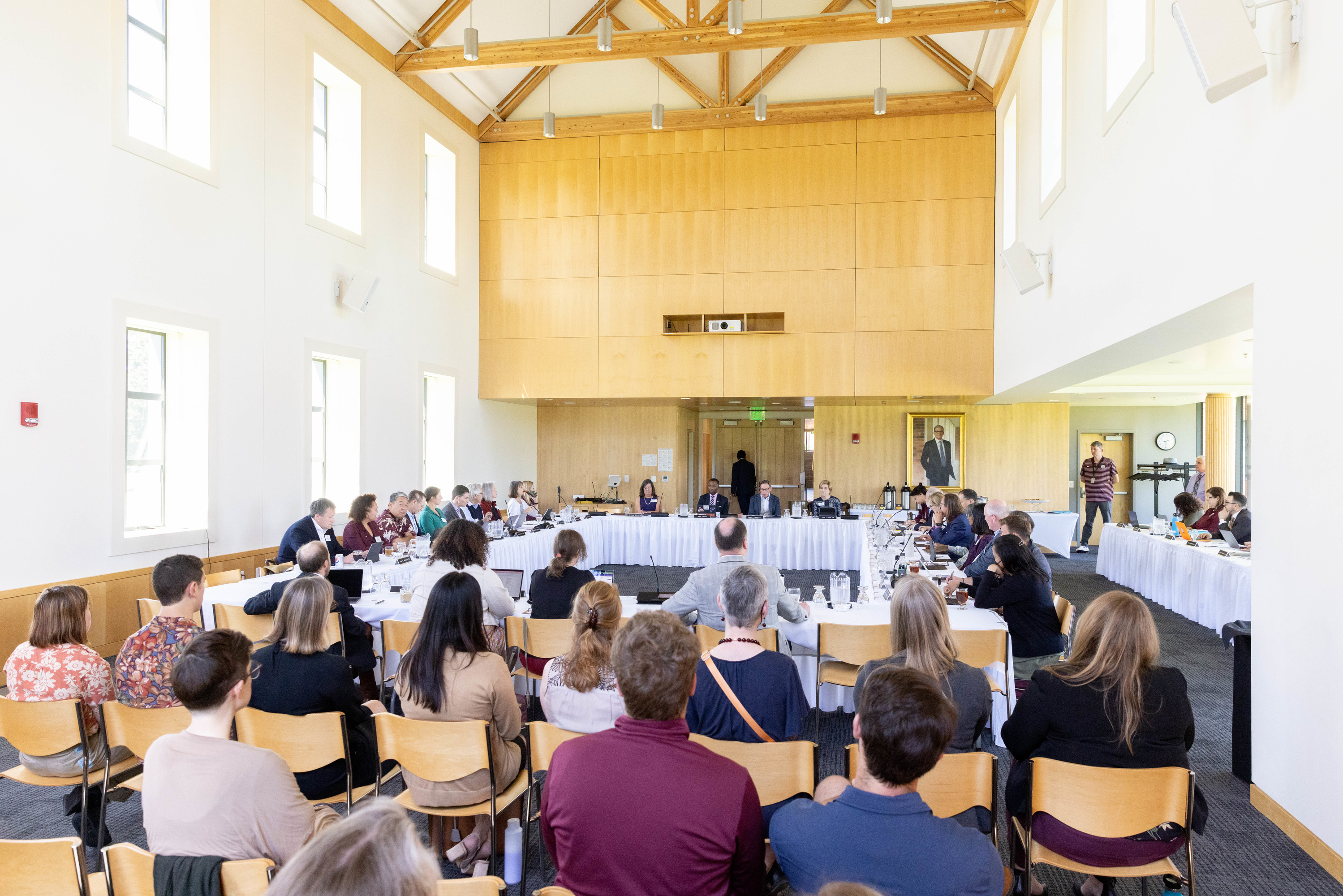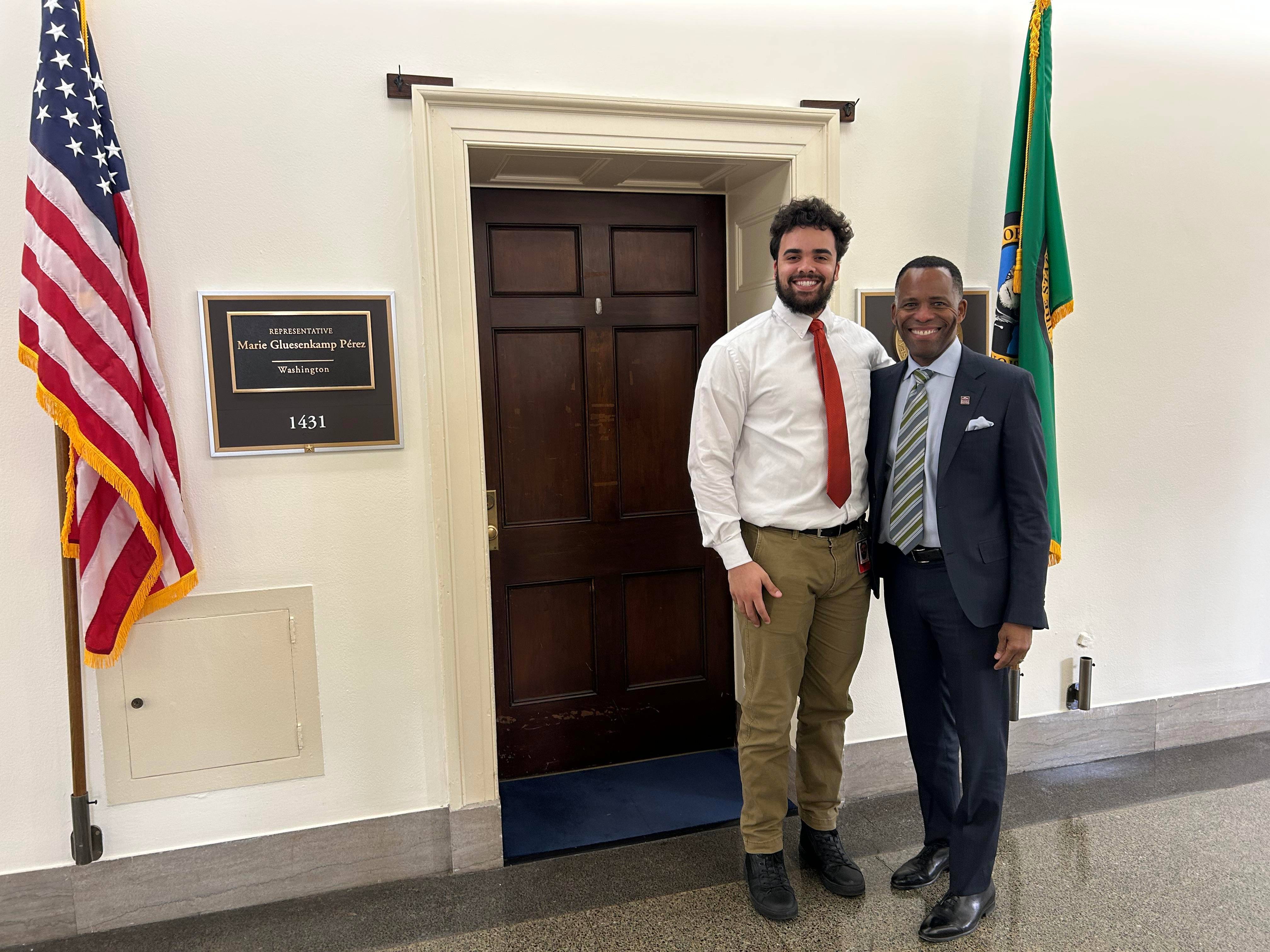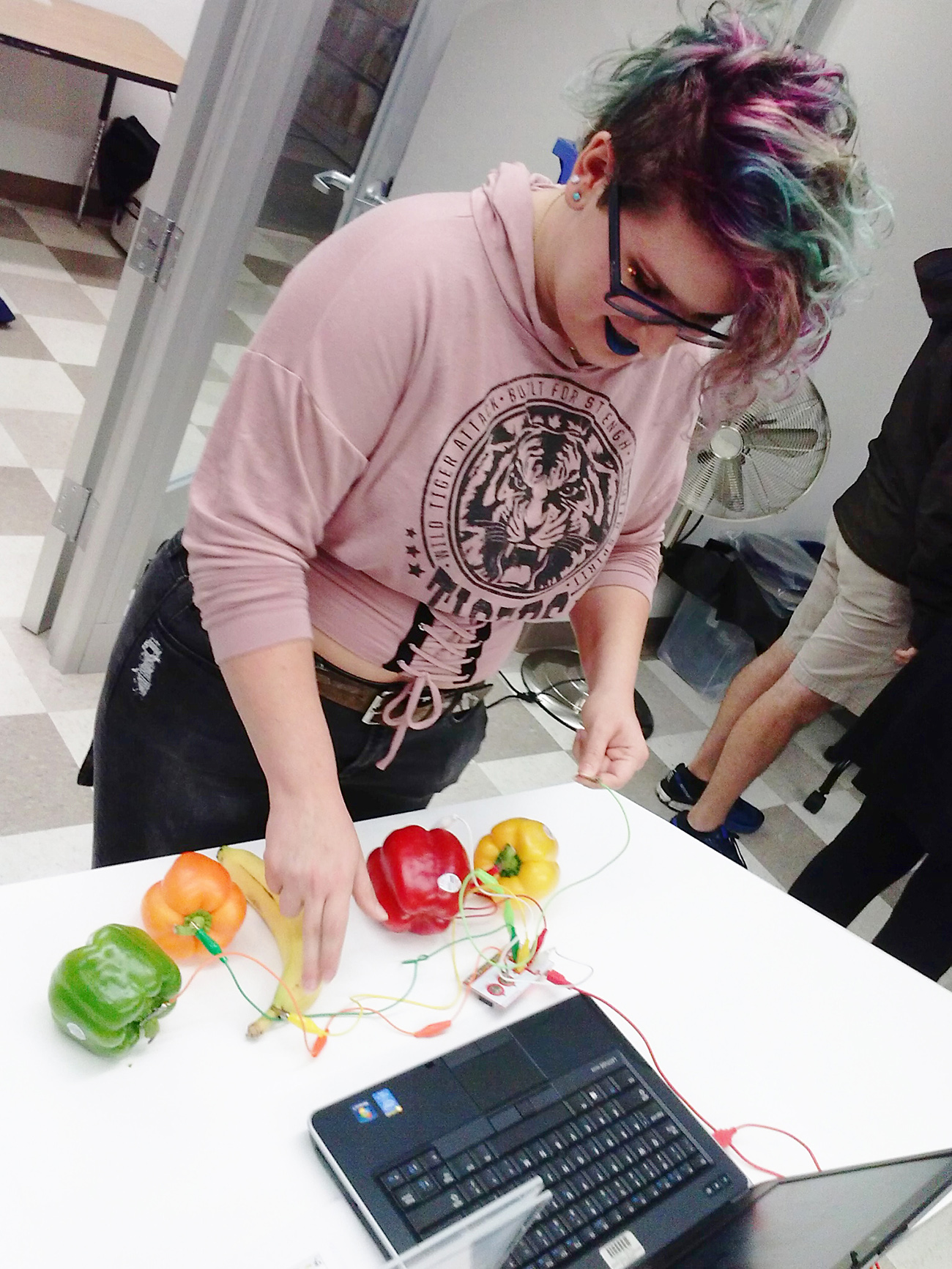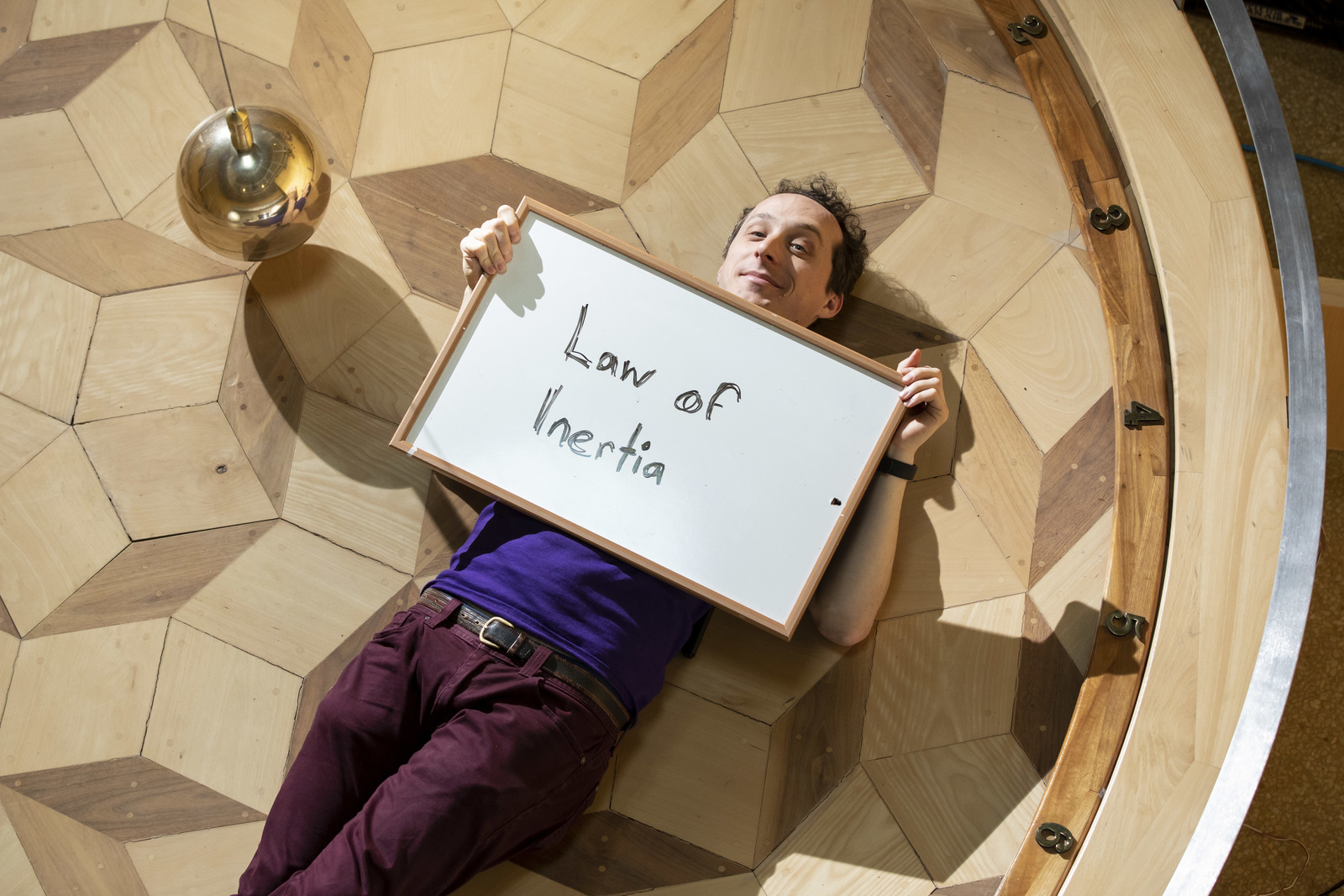Asked about his biggest accomplishment, Donn, seated in one of the two battered, maroon leather chairs winging his office window, drops his ever-narrating hands and thinks. He settles on three.
For a start, he is pleased with how he and others have incorporated sexual assault prevention into student orientation. Then there is 20-plus years of LGBTQ advocacy, which saw the college recognized nationally in 2006 as “gay-friendly,” plus his part in creating an LGBTQ Leadership Scholarship. And finally, there’s his team’s extensive work on suicide prevention—a program that has become a model for campuses around the country.
In retirement, Donn intends to continue using his skills. He will teach suicide prevention classes in the School of Education, and he is on a Washington state committee for suicide prevention. Working with the Museum of Glass in Tacoma, he will help create a curriculum in glass-blowing for injured veterans and active-duty personnel. He also plays mandolin and loves to attend bluegrass and Americana music festivals with his partner of 37 years.
Donn says it has been a rewarding three decades—primarily because of the students who come to his bright, book-stuffed office, forgive his lame jokes as he tries to make them comfortable, and then sit down, cautiously open up, and talk. They share life-changing moments as they grapple with their own complex identities.
“It’s awesome,” Donn says. “What a privilege that has been for me to be able to sit with people, getting to know them in that deep way. It genuinely has felt like a privilege."
